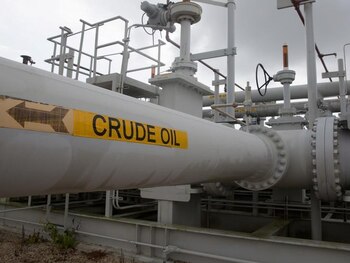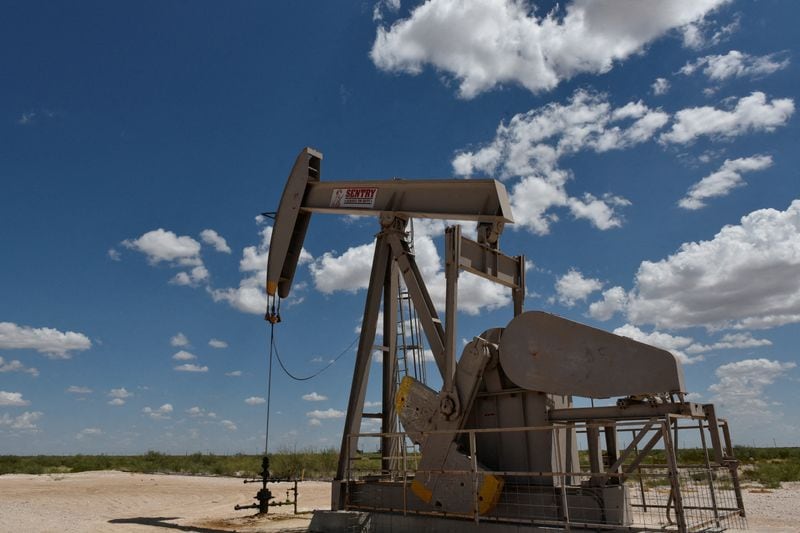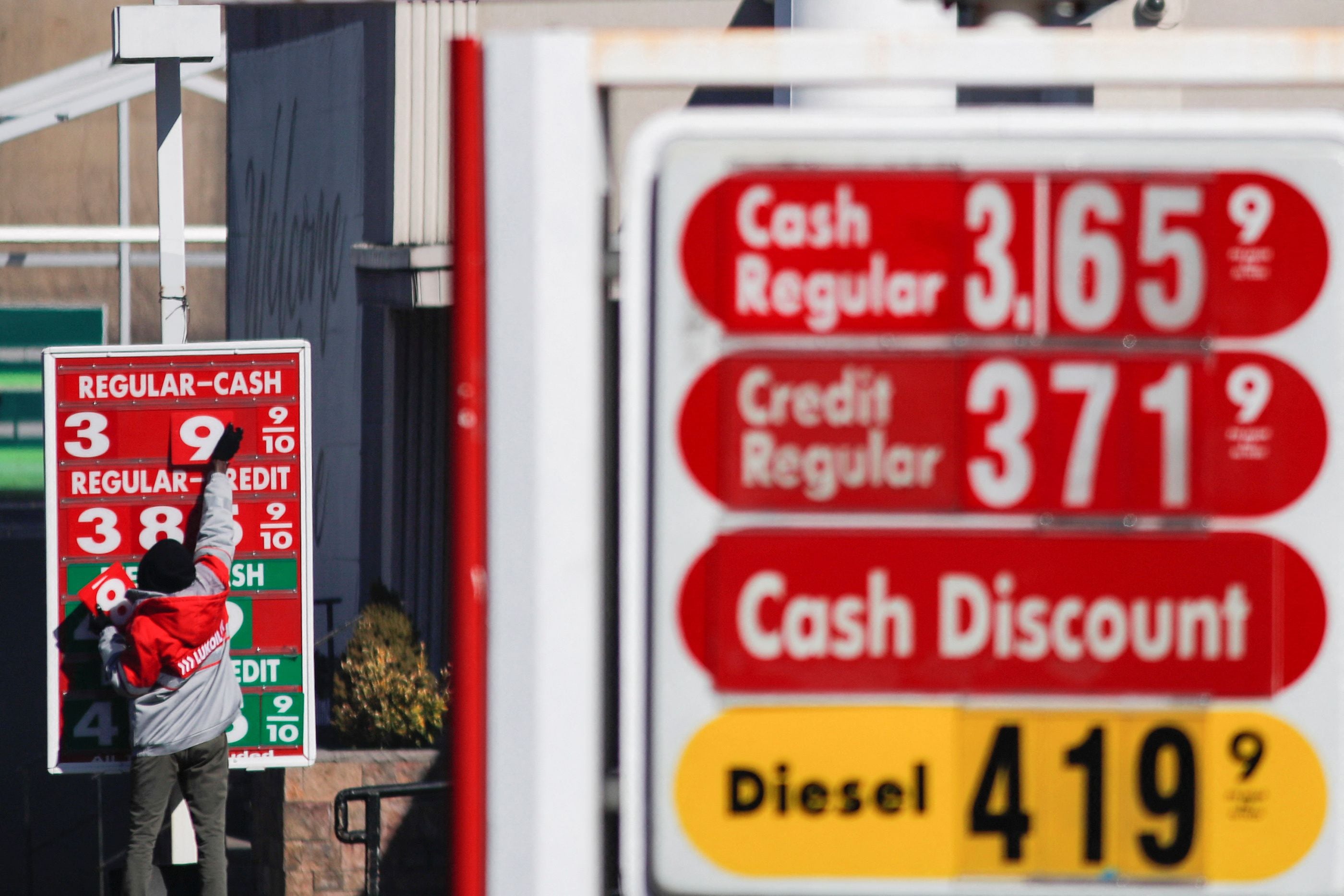
President Joe Biden is again turning to US oil reserves to try to contain rising energy prices.
The White House announced Thursday that Biden ordered the daily release of one million barrels of oil from the strategic oil reserve over the next six months. Biden will also ask Congress to penalize oil and gas companies that lease public land but do not produce energy.
The administration hopes that by harnessing the oil reserve it will gain time and reduce gasoline prices long enough until domestic producers can increase production.
This is the third time that Biden has turned to the strategic oil reserve in just over four months. In November, he ordered the release of 50 million barrels. Then, in his State of the Union address in March, Biden announced another 30 million barrels as part of an effort to boost oil supplies.
Leveraging the reserve is one of the few things a president can do just to try to control inflation, which impoverishes Americans and often creates political responsibility for the party that controls the White House.
Here is a look at what is going to be done:
What is the strategic oil reserve?
The U.S. Strategic Oil Reserve is a collection of underground salt caverns in Texas and Louisiana that can hold more than 700 million barrels of oil, although it is not currently full. The reserve contained about 568 million barrels last week, down from more than 650 million barrels in mid-2021, according to the US Department of Energy.
The reserve was created after the Arab oil embargo of the 1970s to provide the United States with a supply that could be used in an emergency.

Why is it used?
The US now exports more oil than it imports, but the reserve remains and has been exploited for several reasons, from offsetting the impact of hurricanes and other environmental disasters and closing shipping channels to raising money to reduce the deficit.
In 1991, President George H. W. Bush authorized the removal of nearly 34 million barrels during the Gulf War, although only 17 million barrels were used. In 2011, President Barack Obama approved the release of 30 million barrels to compensate for the disruption of Libya's supply.
How do they get the oil out?
Oil is lighter than water, which is why disasters such as those caused by the Exxon Valdez oil tanker and the Deepwater Horizon drilling rig create stains on the surface. To remove oil from the reserves, water is pumped into the salt caverns, causing the crude oil to float to the surface, where it is captured and sent by pipelines to refineries.
Why does Biden take advantage of the reservation?
Supply and demand. Biden hopes that by releasing more oil on the market, prices will fall. Prices fell for almost two weeks after Biden's initial announcement of the use of the reserve in November, but then resumed their sharp rise. US crude oil has risen almost 40% this year and has become even more volatile in the last month.
Whether Biden's latest move works will depend on several factors. One factor to consider: although 1 million barrels per day is a large amount of oil, the US consumed nearly 20 million barrels per day last year and world consumption exceeded 97 million barrels per day.

Will gasoline be cheaper?
What most people want to know is what will happen to prices at gas stations. Many factors play a role in the price of gasoline. Refineries buy crude oil in advance, so they could still be working with more expensive oil. States have different tax rates that affect the price motorists pay.
On Thursday, the national average price for a gallon of regular gasoline was more than $4.22, one cent less than the peak in early March, according to the AAA auto club.
The average is still less than $4 per gallon in many central states, but it is higher in the northeast and higher in the west. In California, it costs $5.90 a gallon.
Even if those prices don't go down, Biden can argue that by using the reserve he tried to help.
Who does it hurt the most?
Gasoline prices are regressive: low-income people are more likely to spend a greater percentage of their money on gasoline than wealthy Americans, so the increases hurt the most price-sensitive consumers. Kevin Book, managing director of Clearview Energy Partners, says that these consumers may not appear in the measures of the nation's economy, “but they appear in the vote counts... if we get down to work, that's what it's really about.”

Why is oil important?
The future of oil and gas in the US is a political hotspot and a source of tension, especially as companies and government agencies deal with climate change and the transition to cleaner energy sources.
On the one hand, the US oil and gas industry has been praised by some political leaders for creating energy independence. Where the US once relied heavily on imports, other nations now rely on the US for oil. It is also a provider of employment: the oil and gas industry employs more than 10 million people in the US and contributes approximately 8% of the nation's gross domestic product, according to the American Petroleum Institute.
Companies that supply oil benefit from higher prices. But consumers don't like it when those higher prices affect them.
The institute has previously said that any release of oil from the strategic reserve must be accompanied by political measures that encourage greater energy production in the US. That clashes with Biden's promise to reduce dependence on fossil fuels that contribute to climate change.
(With information from AP)
Keep reading:
Últimas Noticias
Debanhi Escobar: they secured the motel where she was found lifeless in a cistern
Members of the Specialized Prosecutor's Office in Nuevo León secured the Nueva Castilla Motel as part of the investigations into the case

The oldest person in the world died at the age of 119
Kane Tanaka lived in Japan. She was born six months earlier than George Orwell, the same year that the Wright brothers first flew, and Marie Curie became the first woman to win a Nobel Prize

Macabre find in CDMX: they left a body bagged and tied in a taxi
The body was left in the back seats of the car. It was covered with black bags and tied with industrial tape
The eagles of America will face Manchester City in a duel of legends. Here are the details
The top Mexican football champion will play a match with Pep Guardiola's squad in the Lone Star Cup

Why is it good to bring dogs out to know the world when they are puppies
A so-called protection against the spread of diseases threatens the integral development of dogs




